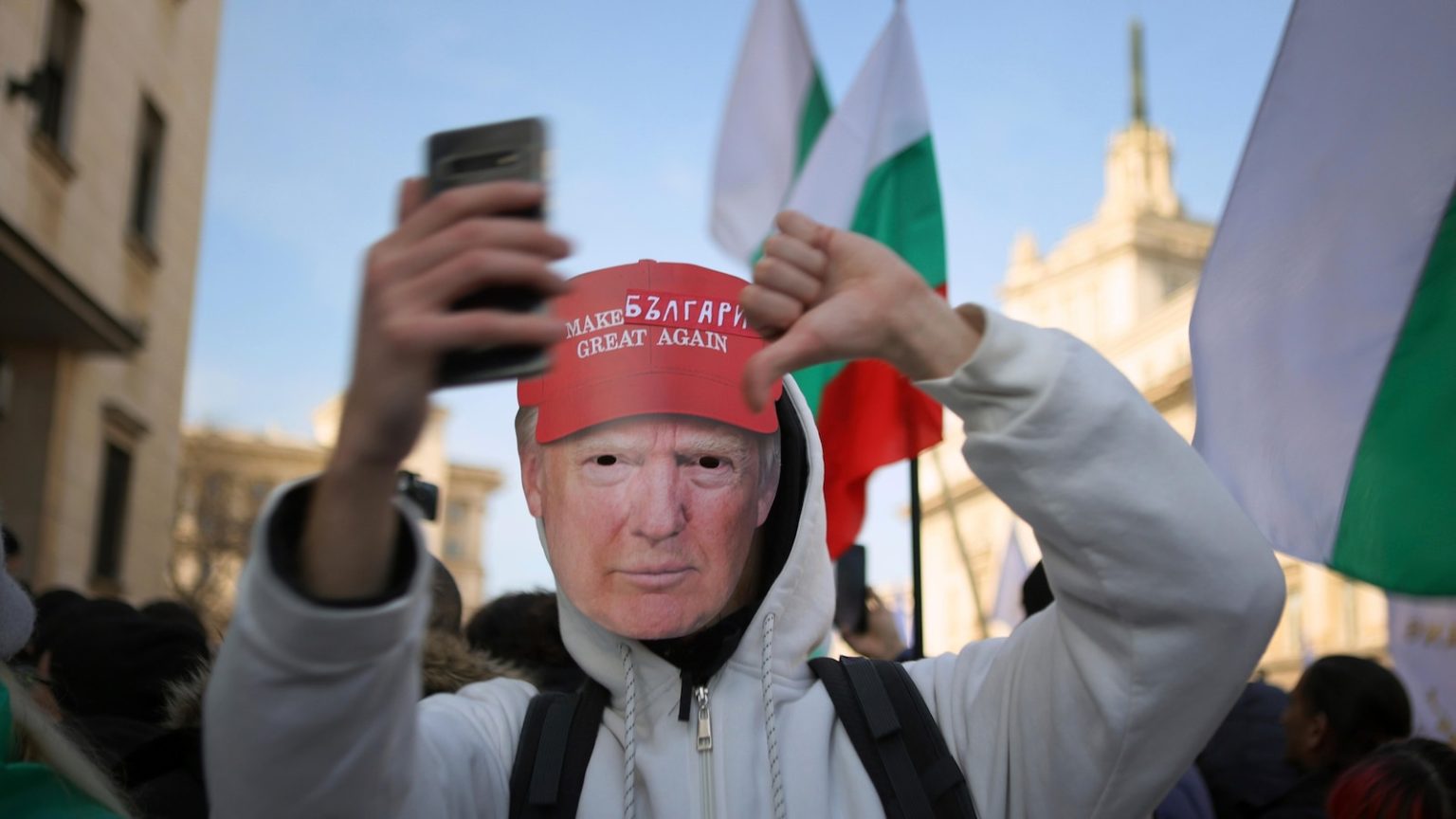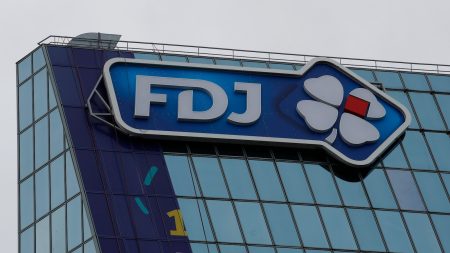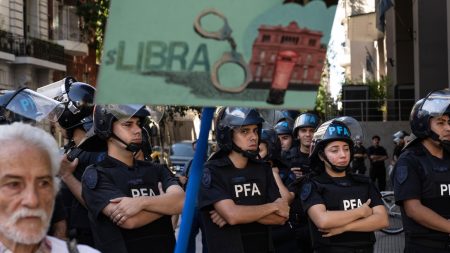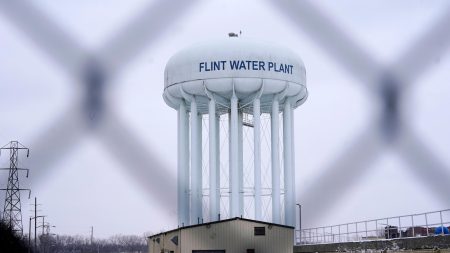The Rising Tensions in Sofia: A Protest Against Eurozone Entry
In the heart of Sofia, Bulgaria’s capital, a dramatic scene unfolded as hundreds of protesters gathered to voice their opposition to the country’s potential entry into the eurozone. The protest, marked by clashes with police, highlighted the deepening divisions within Bulgarian society regarding its economic and political future. The demonstration, organized by the nationalist Vazrazhdane party, began outside the Bulgarian National Bank before moving to the European Commission office, where tensions escalated. The protesters, waving national and party flags, chanted slogans like "No to the euro" and "Yes to the Bulgarian lev," their voices echoing through the streets. The situation turned violent as red paint and firecrackers were thrown at the European Commission building, with a door set ablaze, prompting a swift response from firefighters and police reinforcements.
The Vazrazhdane Party: Leading the Charge Against the Euro
At the forefront of the protest was the Vazrazhdane party, a pro-Russia nationalist group that has emerged as a significant political force in Bulgaria. The party, led by Kostadin Kostadinov, is adamant in its opposition to eurozone membership, arguing that it threatens Bulgaria’s sovereignty and economic stability. Kostadinov, addressing journalists, emphasized the party’s commitment to defending Bulgarian interests and demanded a referendum on eurozone entry. "I am here to defend Bulgaria and the Bulgarian people," he declared, underscoring the party’s stance. The Vazrazhdane party, now the third-largest in parliament, has vowed to escalate its tactics, including blocking the work of the National Assembly if their demands are not met. This stance not only reflects their euroscepticism but also their alignment with pro-Russian sentiments, which are influential in shaping their policy positions.
The Government’s Push for Eurozone Membership
Despite the opposition, the newly formed Bulgarian government remains resolute in its pursuit of eurozone membership, viewing it as a crucial step towards deeper European integration. The government, supported by pro-European parties, argues that adopting the euro will enhance economic stability and strengthen Bulgaria’s position within the EU. This ambition is set against a backdrop of political instability that has plagued the country in recent years, with multiple governments struggling to maintain power. The current administration, formed just last month, sees eurozone entry as a priority, not just economically but politically, especially amid rising geopolitical tensions in Europe. The government’s resolve is bolstered by the belief that eurozone membership will solidify Bulgaria’s integration into the EU and provide a buffer against external pressures.
Economic Readiness: A Debate Among Experts
The question of whether Bulgaria is economically prepared to join the eurozone is a contentious issue. Economists are divided, with some arguing that the country lacks the necessary economic conditions to adopt the euro. Concerns include issues like macroeconomic stability, inflation control, and the need for structural reforms. These economists caution that premature entry could expose Bulgaria to significant risks, potentially undermining its economic growth. On the other hand, the government counters that the benefits of eurozone membership, such as increased investment and stability, outweigh these challenges. The debate is not merely economic but also political, with the government emphasizing the strategic importance of integration to enhance Bulgaria’s influence within the EU.
Disinformation: A Tool for Influence
Complicating the debate is the role of disinformation, particularly from pro-Russia groups aiming to sway public opinion against eurozone entry. These groups exploit fears about sovereignty and economic instability, spreading narratives that portray the euro as a threat to Bulgarian identity. The spread of false information through social media and other channels has become a potent tool, fueling scepticism and mistrust among segments of the population. This tactic is part of a broader strategy to undermine Bulgaria’s European integration and align it more closely with Russian interests. The use of disinformation adds an extra layer of complexity to the political landscape, making it challenging for the government to build consensus on key issues.
Conclusion: Bulgaria at a Crossroads
As Bulgaria grapples with the decision to join the eurozone, it finds itself at a critical juncture. The protests in Sofia underscore the deep divisions within the nation, reflecting broader debates about sovereignty, economic stability, and geopolitical alignment. The government’s push for eurozone membership is driven by a vision of deeper European integration, but it faces formidable opposition from nationalist groups who see it as a threat to Bulgarian identity. The economic arguments are complex, with valid concerns on both sides, and the influence of disinformation further muddies the waters. As Bulgaria navigates this path, the outcome will not only shape its economic future but also its position within the EU and the global arena. The decision ahead is fraught with challenges, but it also presents an opportunity for Bulgaria to strengthen its role in Europe and ensure a stable future for its people.















